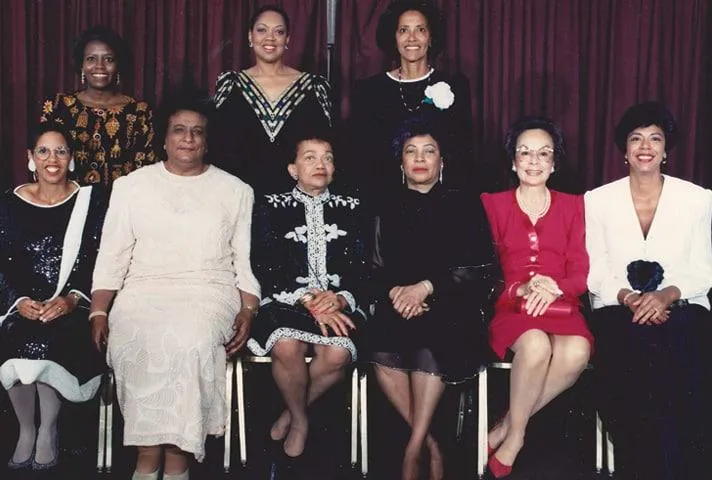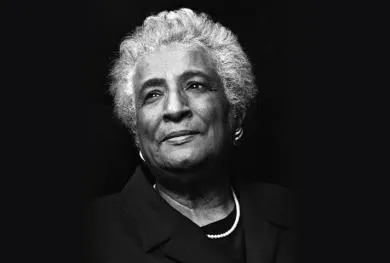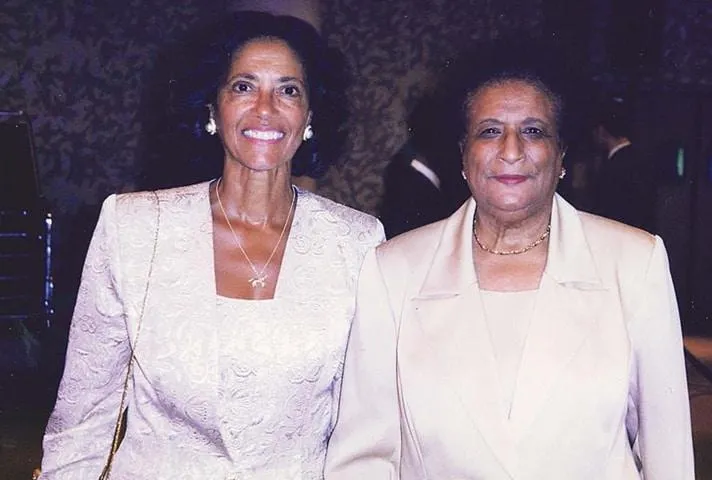
In 1992, the organization Just the Beginning celebrated the diversifying of the federal Judiciary. Constance Baker Motley, the first African American woman to serve as a federal judge, poses with a group of colleagues. Motley remains revered by the many judges and law clerks she mentored. Credit: U.S. District Judge Anne Thompson.
Constance Baker Motley was the first African American woman to argue a case before the Supreme Court, and the first to serve as a federal judge. For all her achievements, Motley’s most-lasting legacy may be the generations of women she inspired to pursue careers in the law.

A 1998 portrait of U.S. District Judge Constance Baker Motley. Credit: Chester Higgins Archive.
In celebration of Women’s History Month, judges reflected on the life and career of the revered trailblazer and civil rights hero.
“She had extraordinary intelligence, fortitude, personal presence, and a desire to have an impact in the world,” said Chief Judge Laura Taylor Swain, who served as a law clerk for Motley, and later was a fellow judge with Motley in the U.S. District Court for the Southern District of New York until Motley’s death in 2005. “Projecting that confidence and intelligence is the only way she could have survived and been successful at what she did.”
Motley played a pivotal role in the fight to end racial segregation from the late 1940s through the early 1960s. As a front-line lawyer for the NAACP Legal Defense and Educational Fund, Motley personally led the litigation that integrated the Universities of Georgia, Alabama, and Mississippi, among others. By the time she left the NAACP in 1965, Motley had personally argued 10 Supreme Court cases (winning nine) and assisted in nearly 60 cases that reached the high court.
Appointed to the bench in 1966, Motley quietly befriended and guided younger women judges. Her influence as a mentor was especially pronounced among Black women judges. Judge Anne Thompson, of the District of New Jersey, received a personal note shortly after her appointment in 1979. “She was just a very gracious person,” said Thompson, who eventually brought her law clerks to meet with Motley every year.

As a federal judge, Constance Baker Motley befriended and mentored many who followed her onto the bench. Here she is with Judge Anne Thompson, of the District of New Jersey. Credit: Judge Thompson.
While Motley was personally reserved and expected long hours of herself and her chambers staff, Swain also found her to be intensely loyal to her law clerks, inviting them annually to a chambers holiday party. Motley also built confidence by entrusting clerks with highly demanding assignments.
“The trust she gave her clerks was mind-boggling, but it taught me I could do this work,” Swain said. “You’d look in a mirror and say, ‘If she believes I can do this, I must be able to do this.’ And I did.”
In addition to her own clerks, Motley inspired generations of women lawyers who became judges themselves, including Justice Ketanji Brown Jackson, the first African American woman to serve on the Supreme Court. Today, there are 299 female judges, including four Supreme Court justices. Women make up nearly 40 percent of the courts’ full-time, active Article III judges.
“I proudly stand on Judge Motley’s shoulders, sharing not only her birthday but also her steadfast and courageous commitment to equal justice under law,” Jackson said following her nomination at the White House. “Judge Motley’s life and career has been a true inspiration to me as I have pursued this professional path.”
Subscribe to News Updates
Subscribe to be notified when the news section is updated.
